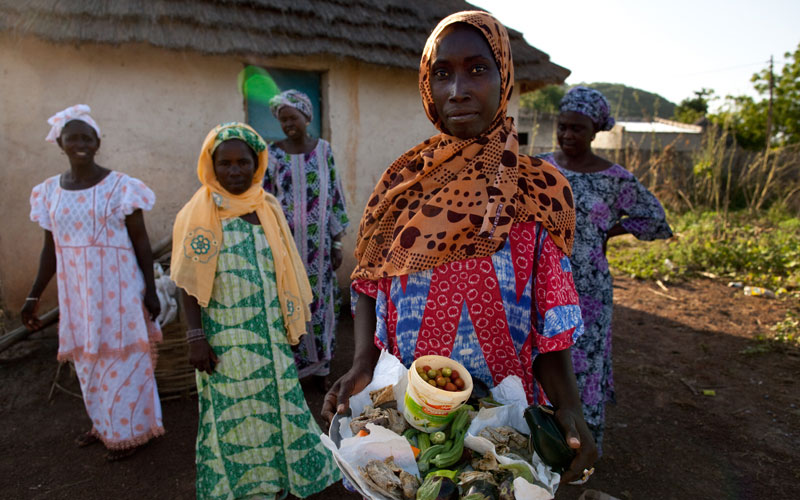How a savings group helps a mother survive Sahel food crisis
 Mariama Ly Photo: Holly Pickett/Oxfam America.
Mariama Ly Photo: Holly Pickett/Oxfam America.
Mariama Ly is getting ready for the Tabaski holiday in her village, Bandafassi, in eastern Senegal. It’s a quiet day in the village, as most are away at area markets buying what they need for the holiday feast in two days. But Ly seems more or less prepared: She already owns two sheep, the center of the traditional feast on the holiday, commemorating Abraham’s sacrifice to Allah.
Ly sells food like dried fish, vegetables, cooking oil, and spices. “It’s going well, “she says, standing near her thatched-roof home. “We’re meeting all our needs with this business.”
I first met Madame Ly two years ago when I was passing through this area. About a year before, she had joined one of Oxfam America’s Saving for Change groups, established with the help of our partner organization in Kedougou called La Lumière. At that time she reported that she had gone from nearly constant debt to a more stable financial situation, greatly reducing stress in her marriage in the process.
On the ground next to her house are dried fish, tomatoes, and eggplants ready to sell to her neighbors. Her neighbors stop by to see what is happening, some of them remember me from 2010 when I attended their group meeting and interviewed several of them. They are a colorful group, laughing and talking so much I can hardly get in a word with Ly myself.
Steady income unusual here
It’s particularly important right now to have a stable source of food and income, as Kedougou has seen a serious food crisis since a poor harvest in 2011. When I was here in April, many farmers were worried that they would not be able to plant crops, or if they could, they would have no money for food to eat during the growing season.
Access to finance, sometimes even just $5 or $10, through a Saving for Change group has helped Ly cover her family’s food costs, even as the cost of living has increased. “When you take a loan, you take a little for yourself, to cover your family’s needs,” she says. “I have saved money, and now I have a consistent source of money and savings,” Ly says. “I can pay back my loans with no problems.”
Part of the reason behind her success is that she has diversified her business. “A lot has changed,” Ly says when I ask her about how her business has expanded. “The business has grown, and I am now cultivating a large rice field.” She says that she hopes to produce 15, 50-kilo sacks of rice this year, and expects to sell all of it.
Ly says that although her business is going well, she still feels the pressure. “Things are moving ahead, but as the children get older, their education costs go up as well.”
“I know my income has increased,” Ly says as I leave her. “I can’t say how much exactly, but it is a lot more now.”